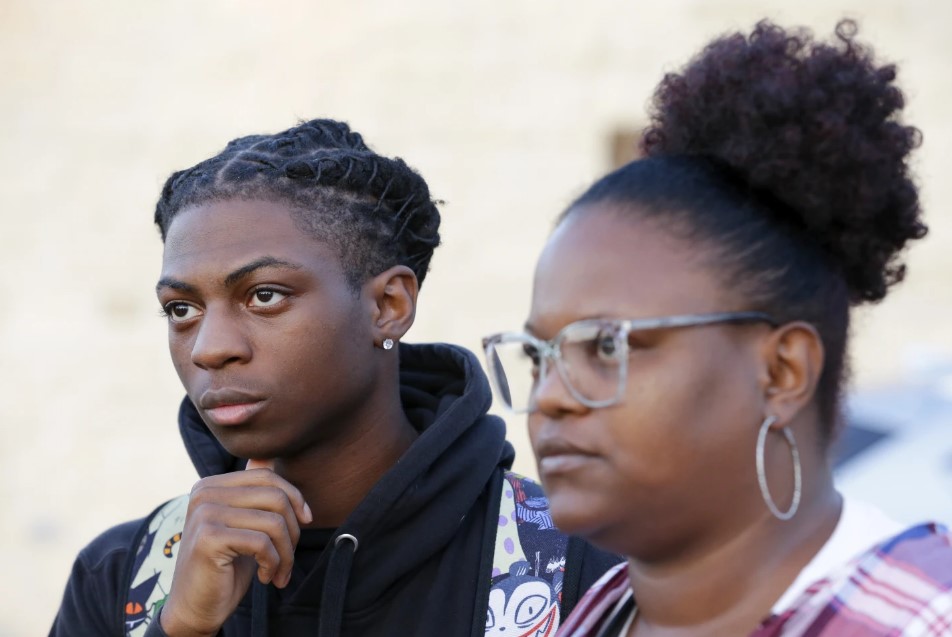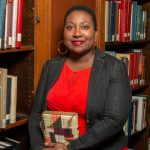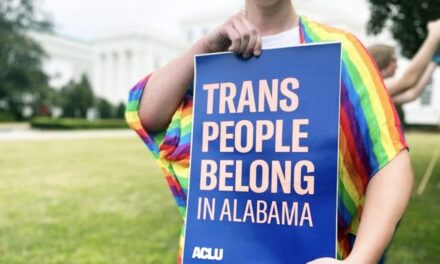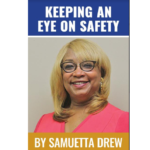By Cheyanne Mumphrey,
and Juan Lozano,
The Associated Press
A Black high school student in Texas has served more than two weeks of in-school suspensions for wearing twisted locs to school. After being punished, 17-year-old Darryl George returned to school with the same hairstyle and was suspended again, his mother said.
George, a junior at Barbers Hill High School in Mont Belvieu, was initially suspended the same week his state outlawed racial discrimination based on hairstyles. School officials said his dreadlocks fell below his eyebrows and ear lobes and violated the district’s dress code.
George has been suspended since Aug. 31 at the Houston-area school. He was in tears when he was suspended, despite his family’s arguments that his hair does not violate the dress code, his mother Darresha George said.
“He has to sit on a stool for eight hours in a cubicle,” she said. “That’s very uncomfortable. Every day he’d come home, he’d say his back hurts because he has to sit on a stool.”
The incident recalls debates over hair discrimination in schools and the workplace and is already testing the state’s newly enacted CROWN Act, which took effect Sept. 1.
The law, an acronym for “Create a Respectful and Open World for Natural Hair,” is intended to prohibit race-based hair discrimination and bars employers and schools from penalizing people because of hair texture or protective hairstyles including Afros, braids, dreadlocks, twists or Bantu knots. Texas is one of 24 states that have enacted a version of the CROWN Act.
A federal version of the CROWN Act passed in the House of Representatives last year, but was not successful in the Senate.
For Black people, hairstyles are more than just a fashion statement. Hair has always played an important role across the Black diaspora, said Candice Matthews, national minister of politics for the New Black Panther Nation. (Her group is not affiliated with another New Black Panther organization, widely considered anti-Semitic.)
“Dreadlocks are perceived as a connection to wisdom,” Matthews said. “This is not a fad, and this is not about getting attention. Hair is our connection to our soul, our heritage and our connection to God.”
In George’s family, all the men have dreadlocks, going back generations. To them, the hairstyle has cultural and religious importance, his mother said.
“Our hair is where our strength is, that’s our roots,” Darresha George said. “He has his ancestors locked into his hair, and he knows that.”
Historians say braids and other hairstyles served as methods of communication across African societies, including to identify tribal affiliation or marriage status, and as clues to safety and freedom for those who were captured and enslaved.
After slavery was abolished, Black American hair became political. Although the Civil Rights Act of 1964 banned discrimination on the basis of race, color, religion, sex and national origin, Black people continued to face professional and social stigma for not adopting grooming habits that fit white, European beauty standards and norms.
This article was originally published by Associated Press.
The post Black student suspended for hairstyle with twisted locs appeared first on AFRO American Newspapers .











